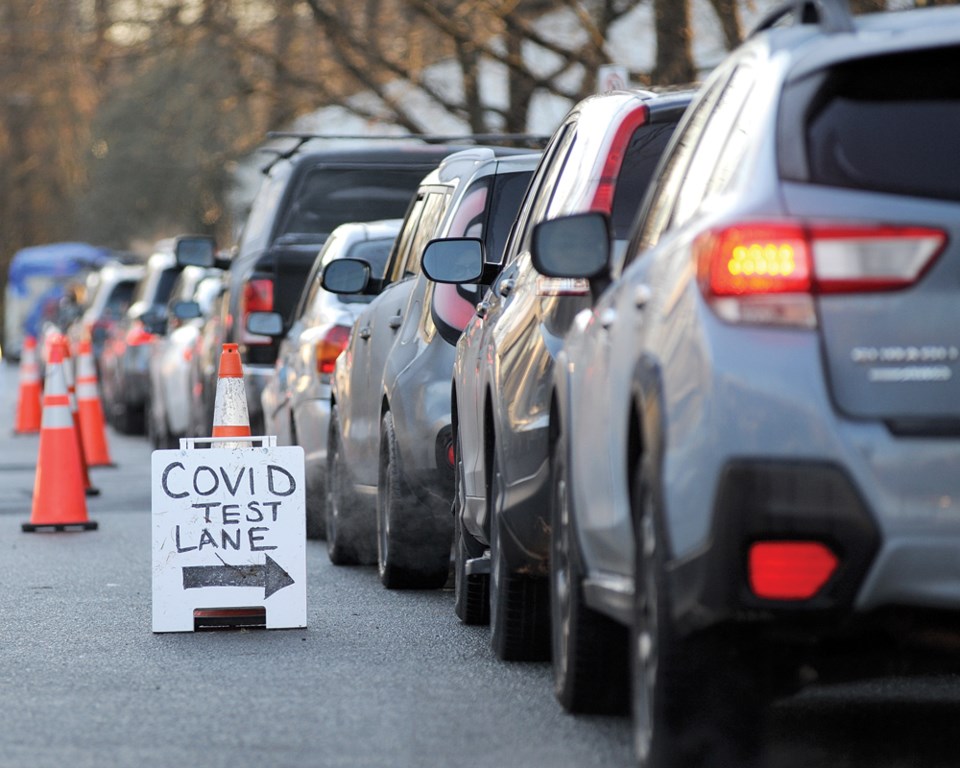Signs of COVID-19 measured in wastewater samples from the North Shore indicate that infection levels are continuing to fall.
Data collected from the Lions Gate Wastewater Treatment Plant showed a dramatic drop in the levels of virus concentrations detected in the second half of February.
Concentrations have fallen to about one-hundredth of the levels seen at the peak of recent Omicron wave of the virus.
On Feb. 16, levels of the COVID-19 virus detected at the North Shore sewage treatment plant were below 3,000 parts per litre, while levels Feb. 21 were about 4,550 parts per litre.
Viral concentrations during the peak of the recent wave, in the first week of January, were 333,000 parts per litre.
Concentrations of virus at other sewage plants in the Lower Mainland showed a similar decline.
Positive PCR tests also down
COVID-19 infections measured by PCR tests – a small subset of the actual number of infections – are also down substantially, with 68 new cases on the North Shore between Feb. 18 and 24, less than one-tenth of the new infections during the first week of January. The number is also less than half the 148 new infections recorded on the North Shore between Feb. 4 – 10.
Hospitalizations of COVID patients down at LGH
The number of people with COVID-19 in Lions Gate Hospital – another important piece of information in tracking the virus – is also down. As of Tuesday morning (March 1), there were 12 people with COVID in the North Vancouver hospital, three of those people in intensive care. That's down from the 26 COVID patients in hospital on the North Shore Feb. 15.
There are currently no outbreaks declared in long-term care homes on the North Shore, although there are cases of COVID-19 among some elderly care home residents. Several residents at Berkley Care Centre, for instance, recently tested positive for COVID-19, although medical health officers have not deemed that an outbreak.
Dr. Bonnie Henry, the province’s medical health officer, has said about 40 per cent of those who’ve died of Omicron since December have been elderly residents of long-term care homes.
Rapid tests being distributed in schools this week
This week, B.C. expanded the distribution of rapid test kits. Children in local schools are expected to receive five rapid antigen tests to take home for family use this week. Residents over 70 have also been told they can pick up free tests at local pharmacies.
So far, B.C. has not dropped measures like mask-wearing and a requirement for vaccine passports in some indoor venues. Henry has broadly suggested however there may be a further easing of restrictions around Spring Break.
“We are in a transition period. But we will take it slowly and sustainably,” she said Tuesday.
Vaccination rates high on North Shore
Vaccination rates continue to be high on the North Shore.
Between 91 and 95 per cent of adults over 18 on the North Shore are fully vaccinated and between 63 and 66 per cent of adults have received a third booster dose.
Between 70 and 77 per cent of children ages five to 11 have received first doses of the vaccine on the North Shore, while between 39 and 48 per cent have received second doses.





